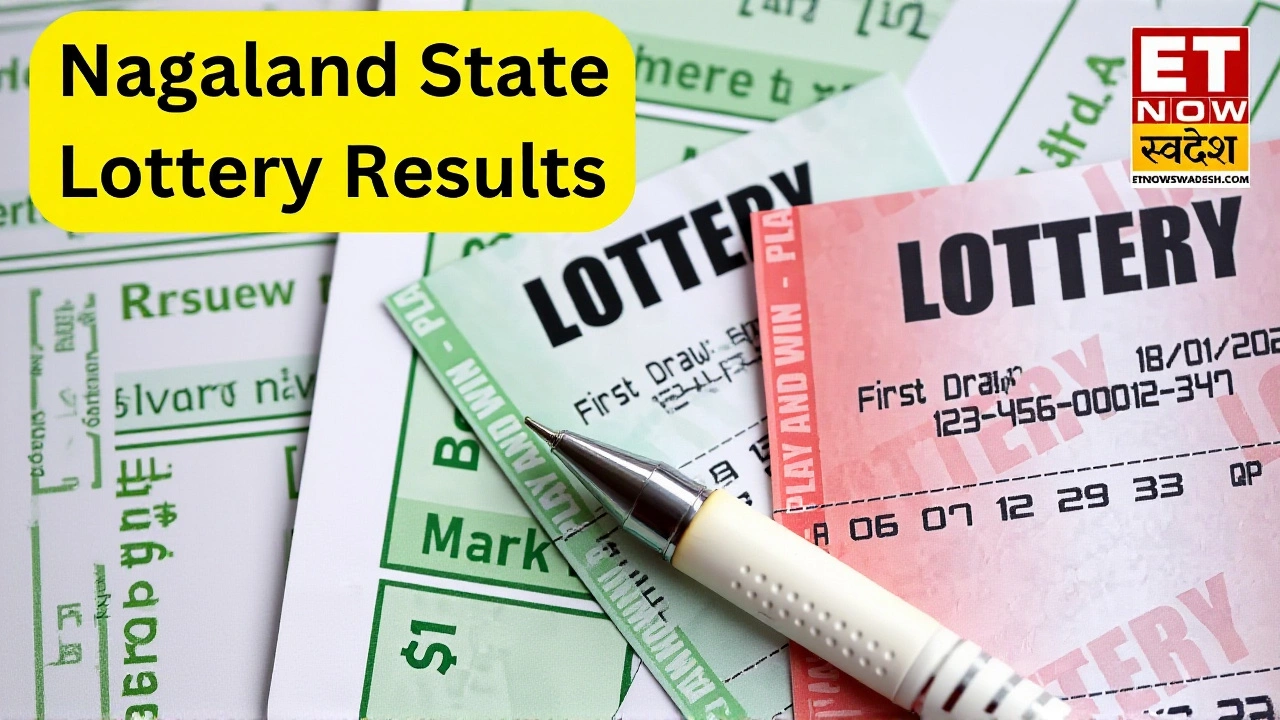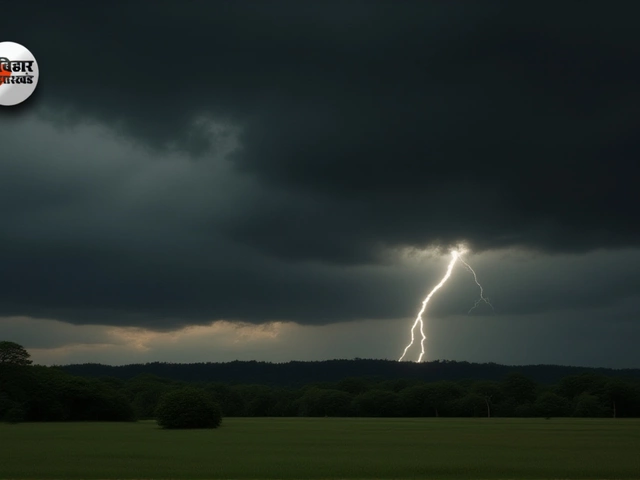Nagaland Lottery Result: 66E 71249 Wins Dear Indus Draw on Feb 26, 2025

- Everett Marsden
- 17 November 2025
- 0 Comments
The winning ticket for the Dear Indus Wednesday lottery draw at 1:00 PM IST on February 26, 2025 was 66E 71249 — a number that sparked a quiet rush across Nagaland and beyond. The result, announced at 12:57 PM by the Nagaland State Lottery Department, was streamed live on YouTube, echoed by news sites like Republic World and Free Press Journal, and instantly downloaded by thousands from LotterySambad.net. This wasn’t just another draw. It was the third of three daily lotteries run by the state, each with its own name, timing, and following — and for many, it’s the only reliable source of hope in a region with limited formal employment.
How the Nagaland Lottery System Works
The Nagaland State Lottery Department doesn’t run one lottery. It runs three — every single day. At 1:00 PM, it’s Dear Indus. At 6:00 PM, Dear Cupid. At 8:00 PM, Dear Pelican. And then, confusingly, there’s also Dear Super Pearl — which, according to the Free Press Journal, was drawn at 7:00 PM on February 26. That’s four draws in less than seven hours. The system is deliberately layered, almost like a schedule of TV shows, each targeting different crowds. People buy tickets for the 1 PM draw on their way to work. The 6 PM draw gets attention after dinner. And the 8 PM draw? That’s when the whole family gathers, phones in hand, watching the YouTube livestream.
The Dear Indus Wednesday lottery draw at 1:00 PM IST on February 26, 2025 was no exception. The winning number, 66E 71249, was flashed across screens before the official 1 PM bell even rang. That’s standard. The department has been announcing results 2–3 minutes early for years. Why? To build anticipation. To keep people hooked. To make sure no one misses the moment.
The Infrastructure Behind the Draw
Behind the scenes, this isn’t just paper and ink. It’s a digital ecosystem. The Nagaland State Lottery Department — headquartered in Kohima, Nagaland — doesn’t just print tickets. It partners with over a dozen private websites that syndicate results. DearLottery.in, LotterySambadResult.in, LotterySambad.net — all update within seconds of the official announcement. They offer downloadable PDFs, SMS alerts, and even WhatsApp bots. One user told me, “I don’t even check the newspaper anymore. My phone buzzes. If it says ‘win,’ I scream.”
Then there’s YouTube. The Nagaland State Lottery’s official channel streamed the 8 PM draw on February 26. It got 9,500 views — not massive by global standards, but enormous for a state with a population under 2 million. The stream isn’t flashy. Just a man in a suit reading numbers off a card. But people watch. They pause. They screenshot. They forward.
Who’s Playing — And Why
Lottery tickets in Nagaland aren’t bought by the wealthy. They’re bought by teachers, shopkeepers, truck drivers, and students. A single ticket costs ₹6. The top prize? ₹1 crore — about $12,000. That’s more than most people earn in a year. In villages where the nearest bank is 30 kilometers away, the lottery is the closest thing to a financial lifeline. It’s not gambling. Not really. It’s a bet on dignity.
“My mother buys one every Wednesday,” said Ratan Tzudir, a college student from Dimapur. “She says, ‘If I win, I fix the roof. If I don’t, I still got something to dream about.’”
The state government doesn’t release exact revenue figures, but estimates suggest the lottery brings in over ₹1,200 crore annually. That money funds schools, rural clinics, and road repairs — especially in remote districts like Longleng and Peren. The lottery isn’t just a game. It’s a silent tax — voluntary, emotional, and deeply personal.
Confusion and Controversy
But the system isn’t flawless. The overlapping names — Dear Indus, Dear Super Pearl, Dear Pelican — confuse even regular players. The LotterySambadResult.in website, which claims to archive results since 2023, listed future months like “November 2025” as if it were a placeholder. That’s a glitch, yes — but it also reveals how loosely the digital infrastructure is maintained. Some sites still use “Lotery” instead of “Lottery.” Others have broken download links. One user posted a screenshot of a result sheet with the date “26/2/2024” — a year off.
And then there’s the disclaimer. Every news site — Republic World, LatestLY, even Free Press Journal — prints: “Results are unofficial. Verify with the Nagaland State Lottery Department.” But who does? Most people trust the first site they see. And if that site is wrong? Too late.
What Happens Next
The next draw? The 6 PM Dear Cupid on February 26, 2025 — followed by the 8 PM Dear Pelican. And then, tomorrow, the same cycle begins again. The state has no plans to change the system. Why would it? It works. People keep buying. Revenue keeps flowing. And for every winner, there are 10,000 who don’t win — but still come back.
What’s changing is how people access the results. Mobile data is cheaper. Internet penetration is rising. Soon, the lottery might shift to an app-based system. Maybe even blockchain verification. But for now? It’s still a man in Kohima reading numbers into a camera. And millions waiting.
Frequently Asked Questions
How do I verify if my ticket won the February 26, 2025 Dear Indus draw?
Always check the official Nagaland State Lottery Department website or visit their office in Kohima. While sites like LotterySambad.net and Republic World publish results quickly, they’re not legally binding. Winners must present the physical ticket with the exact number — 66E 71249 — along with valid ID. Claims made after 30 days are void.
Why are there multiple lottery names like Dear Indus and Dear Super Pearl on the same day?
The Nagaland State Lottery Department uses different brand names to segment the market and increase ticket sales. Each draw has its own prize pool and ticket design. Dear Indus (1 PM) and Dear Super Pearl (7 PM) are separate events with different odds and prize structures. This strategy keeps players engaged across multiple times of day, boosting overall revenue.
Is the Nagaland Lottery legal outside Nagaland?
Yes — but with caveats. While Nagaland’s lottery is state-authorized under the Nagaland State Lottery Act, selling tickets in other Indian states like Maharashtra or Tamil Nadu is legally gray. Many online portals operate in a regulatory gray zone, selling tickets nationwide. However, claiming prizes requires physical presence in Nagaland. Enforcement is rare, but not impossible.
How are lottery proceeds used by the Nagaland government?
Though exact figures aren’t published annually, state audits indicate over 70% of lottery revenue funds public infrastructure — especially in rural areas. Projects include school renovations in Zunheboto, health centers in Mokokchung, and road repairs in Phek. The rest covers administrative costs and prize payouts. Unlike gambling profits elsewhere, Nagaland’s lottery is constitutionally classified as a “state revenue scheme,” not a vice.
Why does the result come out at 12:57 PM if the draw is at 1:00 PM?
It’s a psychological tactic. Announcing results 2–3 minutes early creates a sense of urgency and exclusivity. People who check early feel “in the know.” It also allows time for websites and social media to update before the official draw time, reducing server crashes. The physical draw happens at 1 PM — but the result is declared early to manage digital traffic and public anticipation.
Can I buy Nagaland Lottery tickets online?
Officially, no. Tickets must be purchased from authorized physical vendors in Nagaland or neighboring states where permitted. But dozens of websites — including DearLottery.in and LotterySambad.net — sell digital “e-tickets.” These are unregulated and carry risk. The state does not guarantee payouts for online-purchased tickets. Always verify with a physical ticket bearing the official seal.


